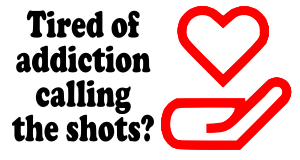There are two stages of withdrawal. The first stage is the acute stage, which usually lasts at most a few weeks. During this stage, you may experience physical withdrawal symptoms. But every drug is different, and every person is different.
The second stage of withdrawal is called the Post Acute Withdrawal Syndrome (PAWS). During this stage you'll have fewer physical symptoms, but more emotional and psychological withdrawal symptoms.
Most people experience some post-acute withdrawal symptoms. Whereas in the acute stage of withdrawal every person is different, in post-acute withdrawal most people have the same symptoms.
The Symptoms of Post-Acute Withdrawal
- Mood swings, anxiety, irritability
- Tiredness, variable energy, low enthusiasm
- Variable concentration
- Disturbed sleep
These are the most common post-acute withdrawal symptoms.
Post-acute withdrawal feels like a rollercoaster of symptoms. In the beginning, your symptoms will change minute to minute and hour to hour. Later as you recover further they will disappear for a few weeks or months only to return again. As you continue to recover the good stretches will get longer and longer. But the bad periods of post-acute withdrawal can be just as intense and last just as long.
Each post-acute withdrawal episode usually last for a few days. Once you've been in recovery for a while, you will find that each post-acute withdrawal episode usually lasts for a few days. There is no obvious trigger for most episodes. You will wake up one day feeling irritable and have low energy. If you hang on for just a few days, it will lift just as quickly as it started. After a while you'll develop confidence that you can get through post-acute withdrawal, because you'll know that each episode is time limited.
Post-acute withdrawal usually lasts for 2 years. This is one of the most important things you need to remember. If you're up for the challenge you can get though this. But if you think that post-acute withdrawal will only last for a few months, then you'll get caught off guard, and when you're disappointed you're more likely to relapse.
How to Survive Post-Acute Withdrawal
Be patient. You can't hurry recovery. But you can get through it one day at a time. If you resent post-acute withdrawal, or try to bulldoze your way through it, you will become exhausted. And when you're exhausted you will think of using to escape.
Post-acute withdrawal symptoms are a sign that your brain is recovering. Therefore don't resent them. But remember, even after one year, you are still only half way there.
Go with the flow. Withdrawal symptoms are uncomfortable. But the more you resent them the worse they'll seem. You'll have lots of good days over the next two years. Enjoy them. You'll also have lots of bad days. On those days, don't try to do too much. Take care of yourself, focus on your recovery, and you'll get through this.
Practice self-care. Give yourself lots of little breaks over the next two years. Tell yourself "what I am doing is enough." Be good to yourself. That is what most addicts can't do, and that's what you must learn in recovery. Recovery is the opposite of addiction.
Sometimes you'll have little energy or enthusiasm for anything. Understand this and don't over book your life. Give yourself permission to focus on your recovery.
Post-acute withdrawal can be a trigger for relapse. You'll go for weeks without any withdrawal symptoms, and then one day you'll wake up and your withdrawal will hit you like a ton of bricks. You'll have slept badly. You'll be in a bad mood. Your energy will be low. And if you're not prepared for it, if you think that post-acute withdrawal only lasts for a few months, or if you think that you'll be different and it won't be as bad for you, then you'll get caught off guard. But if you know what to expect you can do this.
Being able to relax will help you through post-acute withdrawal. When you're tense you tend to dwell on your symptoms and make them worse. When you're relaxed it's easier to not get caught up in them. You aren't as triggered by your symptoms which means you're less likely to relapse.
Remember, every relapse, no matter how small undoes the gains your brain has made during recovery. Without abstinence everything will fall apart. With abstinence everything is possible.



